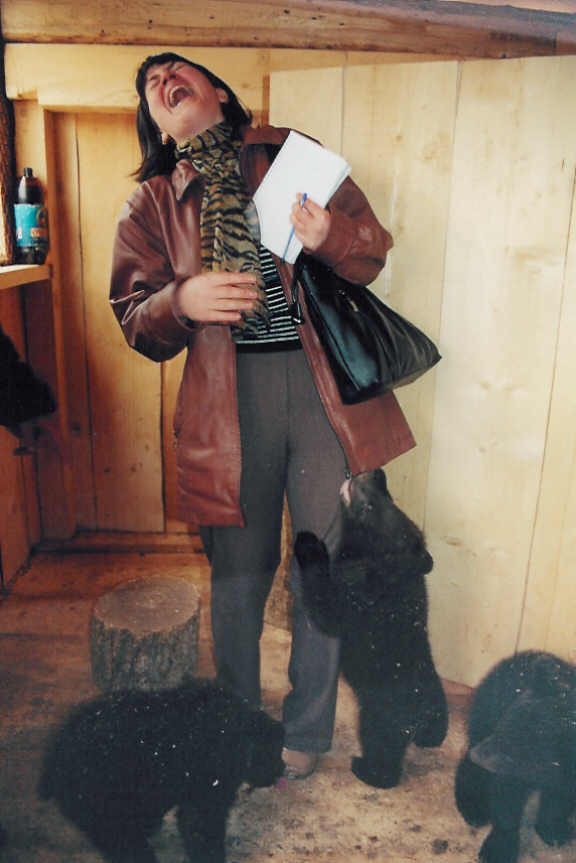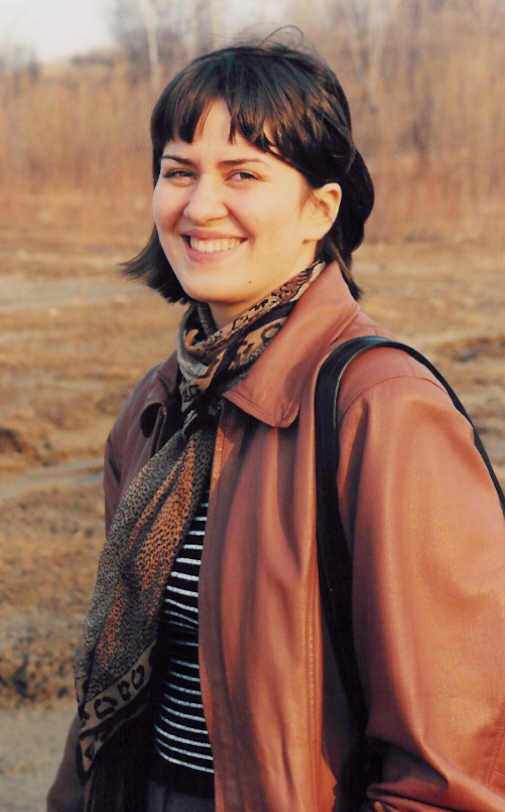Petra's homepage
Experiences of a Dutch Journalist
Khabarovsk, 10-14 April 2003
Twice colleague Yulia Nikishina and me had been invited as newspaper staff to come and visit while our hosts picked up the bill (Japan & Vladivostok). Now, we really wanted to go to Khabarovsk (as many expatriates living on Sakhalin travel through Khabarovsk, but don't always know what places to visit), but lacked the funds. The 4-star Hotel Parus provided us with a room free of charge.

This city of 600,000 inhabitants is refreshingly different from Sakhalin. It is clean, well maintained and breathes a European atmosphere with its 19th-century architecture and reconstructed main street. This church on Komsomolskaya Square was completed in October 2001 to replace the grand cathedral destroyed by the Bolsheviks.
In Sikachi-Alyan, at 150 from Khabarovsk, we looked at the traditional culture of the native Nanai people, who traditionally lived from fishing and hunting. Their culture has a lot in common with native people on Sakhalin. These kids performed a Nanai song for us at the local school. 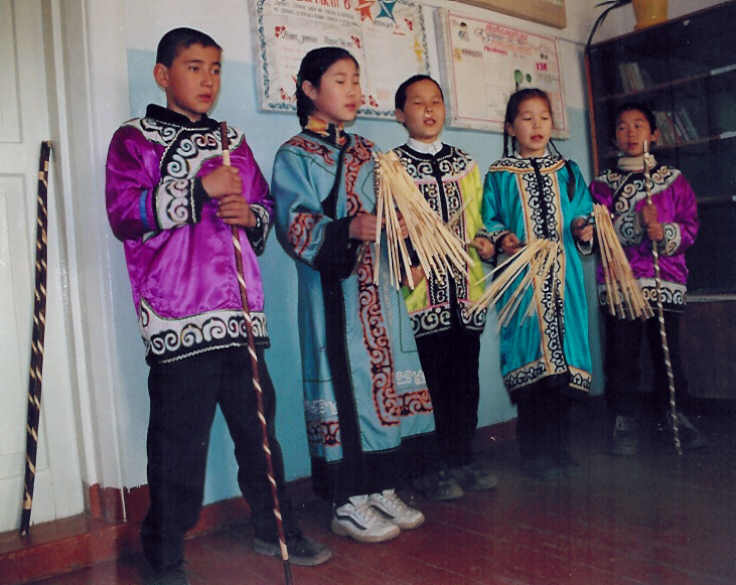
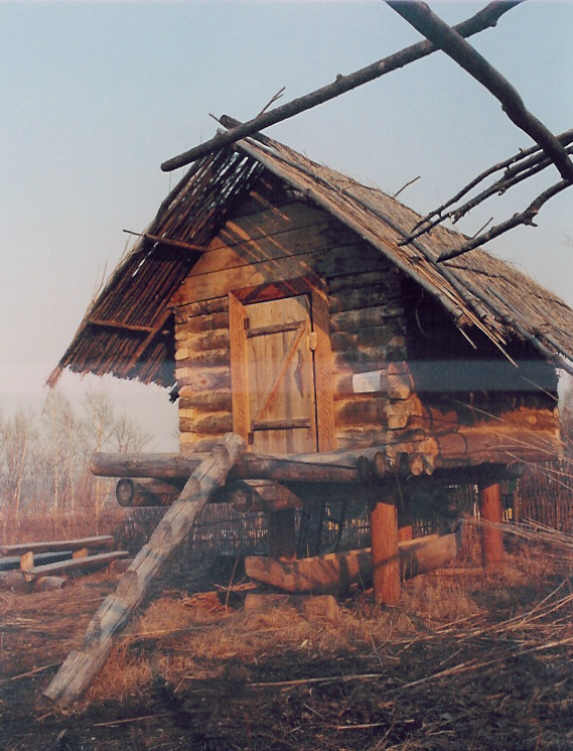
The Nanai used this type of huts to store fish. A Russian company rebuilt this hut and several other examples of traditional Nanai houses close to the village.
Happy Yulia.

And happy Petra, here on the train to the Jewish autonomous region, at 2.5 hours from Khabarovsk.
The seven-armed menorah in front of the railway station in Birobizhan, is one of a handful of signs disclosing you are in the capital of the Jewish Autonomous Region, which looks like an ordinary Russian city at first sight. Birobizhan was founded in 1927 as a homeland to about one million Jews who were left without a roof after the Russian Revolution of 1917. It's a swampy area with poor soil and bitterly cold winters. Stalin forced an end to the developing Jewish culture in the thirties. 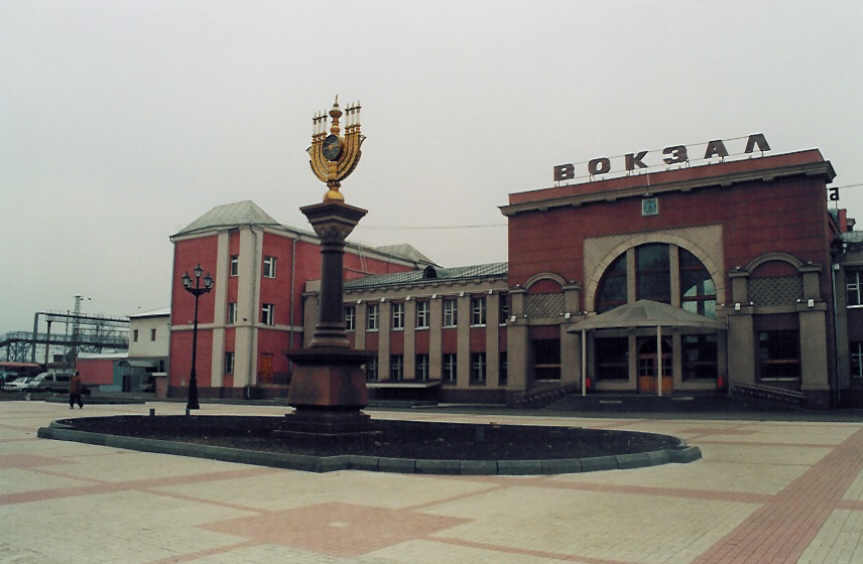
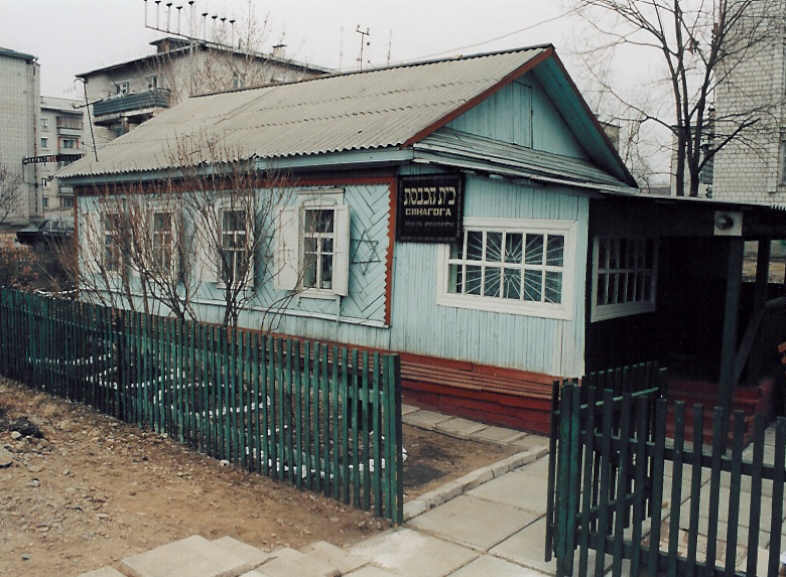
This synagoge was first build in 1947 and rebuilt in 1967 after it burnt down.
This is the centre of the 4,800 member 'Freid' community. Next to the building a new synagoge is being constructed. Jiddish is taught at one Jewish state school, Jewish food is served in three restaurants and holidays are widely celebrated. The region also has its own television programme, newspaper and radio programme. All together they are signs the Jewish culture in Birobizhan is experiencing a remarkable revival. 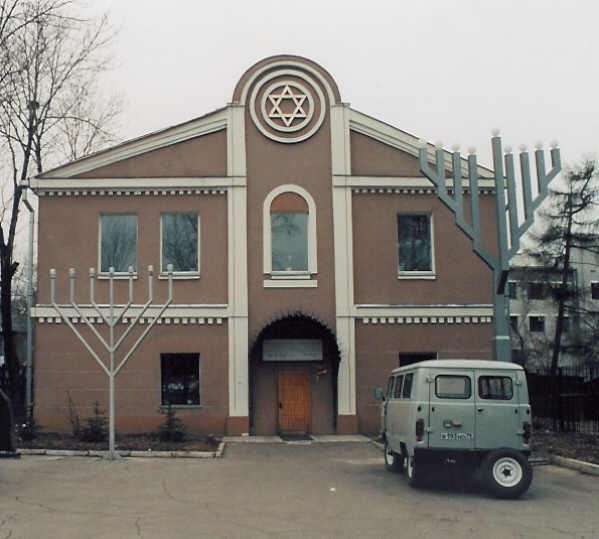

This is Vladimir Kruglov. He founded an animal rehabilitation centre at 180 kilometres from Khabarovsk. It started all with sick Amur tiger Lyuti in 1995. People brought the tiger to his house and Kruglov took care it. But soon the tiger became too big to stay in his house. Now he has sixteen bear cubs, two tigers, two lynxes, a fox, a raccoon and a dappled deer at 5.2 hectares.
These bear cubs mistake Yulia for a parent. Most bears staying at the rehabilitation centre were left without their parents soon after birth. When they are a year to 18 months old, they are released again.
